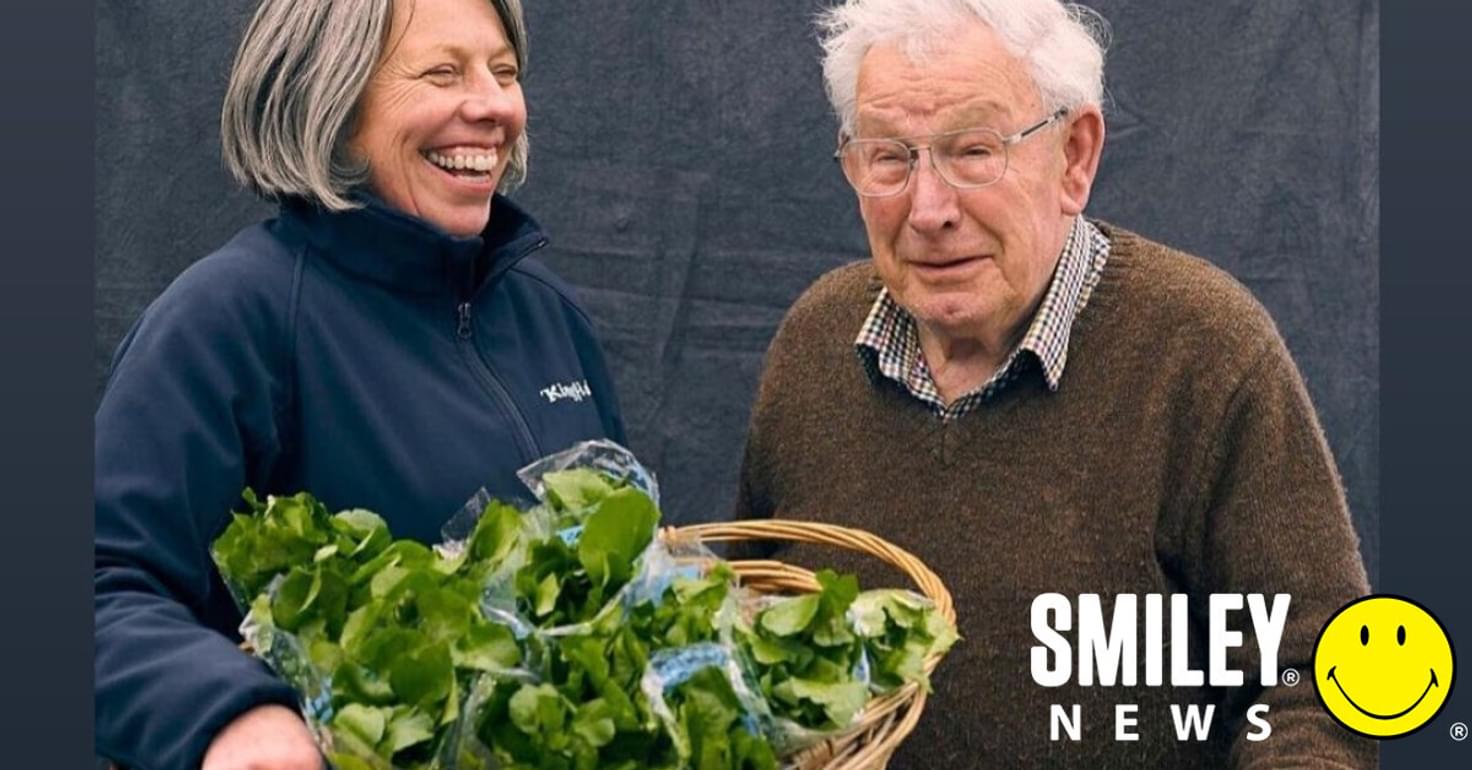
Words by Smiley Team
In the luscious green Surrey Hills, Marion McBurney runs an acreage known as Kingfisher Farm. Aside from a few small updates over the years, the farm is remarkable in that it fundamentally hasn’t changed much for decades.
Since playing on the farm in the 1970s, Marion has maintained an eco-friendly approach to agriculture that she believes could be the answer to climate-related challenges to agriculture.
On Kingfisher Farm, workers grow rotational crops and use renewable energy, refills and local produce to remain as sustainable as possible.
To collect and carry fruit and vegetables from the farm shop, customers can use paper bags, cardboard boxes or baskets woven by a local craftsperson.
Marion tells Smiley News: “Since my parents ran the farm in the ‘70s, it's always been clear to us that we shouldn't overbuy or overproduce and that we should always, wherever possible, reuse packaging.”
Initially prompted by her parents’ postwar attitude of ‘make-do and mend’, the business approach has gained legitimacy with time.
As more people become environmentally aware, the need to remain sustainable becomes ever more apparent. Marion sees the evidence firsthand. Due to the climate crisis, she is experiencing more obstacles to farming, as is the case for many others like her.
For over a century the farm has produced watercress. But with changing seasons, this has become increasingly difficult. The weather is less predictable, it is difficult to judge when to sew crops, and the watercress takes longer to grow. Other crops such as corn and potatoes are also affected.
“They call the period between last year’s harvest and the next harvest time ‘the hungry months’ and I think it's only going to become more true to its name as time passes,” she says.
But to overcome these challenges, she believes her age-old approach to farming will outdo more intensive forms of agriculture.
She explains: “With intensive monocropping, if something goes wrong it will impact your entire production system. Whereas if you're just cultivating a small area with rotating crops, then a crop failure won’t have such a significant impact on your business - so you have more control.”
Additionally, she believes her approach is better for strengthening communities.
“In smaller farm businesses, the focus on the local community is much greater. You’re feeding people you have regular contact with rather than people hundreds of miles away from where the food is produced.”
“With time I think small-scale farming is only going to become stronger,” she adds.
DONATE: To encourage more sustainable farming in the UK, donate to the Sustainable Food Trust.
TAKE ACTION: Add your voice to the growing call for sustainable food production. Get involved with the Sustainable Food Trust.